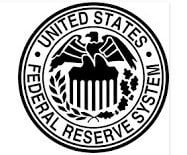The next great investment wave is very likely going to be in the clean energy sector. According to the Massachusetts Clean Energy Center, the industry grew by nearly 12 percent in the commonwealth last year, the sector’s largest single-year of growth since the organization began tracking jobs data five years ago. And lawmakers currently are debating several pieces of legislation that could bring even more expansion to the sector.
Among them are proposals to put a price on carbon in the commonwealth, using a carbon fee and rebate model that already has been successful elsewhere. Those who wish to see increased returns from investments in clean energy should support these efforts.
Legislation at the State House would create a commonsense carbon pricing system in Massachusetts, similar to one that has worked so well in the Canadian province of British Columbia.
A bill would charge fossil fuel importers a fee based on the carbon content of the fuels. The fees would go into a special fund for rebates and be passed on directly to households and employers. Each resident would receive an equal rebate from the fund, giving everyone an incentive to reduce their use of fossil fuel in order to keep more of their rebates. Businesses, nonprofit organizations and municipalities would receive a dividend from the fund based on their share of the state’s employment.
Massachusetts would be implementing a policy that encourages residents and businesses to use less fossil fuel, thus reducing carbon emissions while helping the economy. In British Columbia, the clean energy sector has grown by more than 50 percent since the province adopted a fee-and-rebate policy in 2008.
A Win For Everyone
So why should clean energy investors support legislation that won’t make direct investments into the sector? First, in an era when climate change is making the fossil fuel foundation of our economy increasingly questionable, such a policy would provide predictability as the commonwealth continues to wean itself off of carbon-based energy and onto more reliable and sustainable forms of power. Carbon pricing is the single most effective policy that the state can implement to reduce carbon emissions, and as so many made clear at the recent Paris climate talks, doing it in this way will help ensure the kind of predictability that businesses and investors crave.
Secondly, carbon pricing would signal to investors that Massachusetts has developed a consensus around a clean energy future that will encourage even more investment. Clean energy investors want to put their resources into communities they know value science and innovation, and they especially want to invest in places where the economy is growing. Passing carbon pricing can help existing clean energy employers and attract new ones, and that is an appealing prospect to investors. Additionally, as a 2014 report by the state’s Department of Energy Resources demonstrated, a carbon fee-and-rebate policy will keep in local circulation more of the $20 billion the state currently sends each year to places such as Texas and Saudi Arabia for fossil fuels, and generate more growth.
Finally, investors know that the positive long-term impacts of carbon pricing are worth advancing. Climate change not only will wreak havoc on Massachusetts’s coastline and our aging infrastructure; it also will increase rates of respiratory diseases and other health problems due to air pollution. Reducing carbon emissions means reducing spending on health care costs, and that is a win for everyone, including those who want to attract more employers to the commonwealth.
The carbon pricing legislation is being debated at the State House by the Joint Committee on Telecommunications, Utility and Energy. Here’s hoping the committee passes it by its deadline of March 16 so that the rest of the legislature can examine the benefits that carbon pricing can bring to the commonwealth. Massachusetts has always been a leader in addressing climate change. Becoming the first state in the nation to pass carbon fee and rebate legislation will pay great dividends for everyone.
David Miller is founder and executive managing director of Clean Energy Venture Group, an investment group that provides seed capital and management expertise to early stage clean energy companies.






